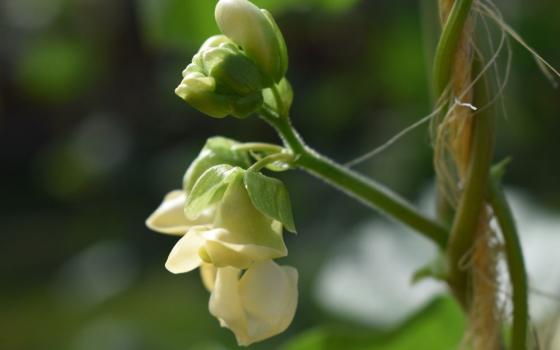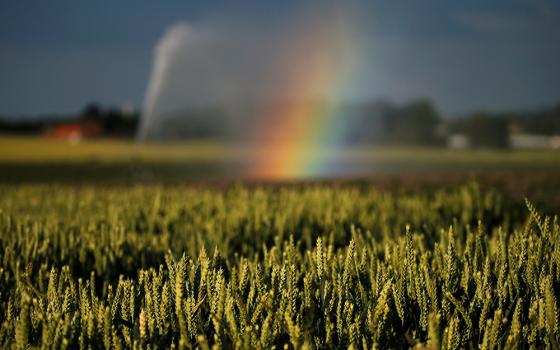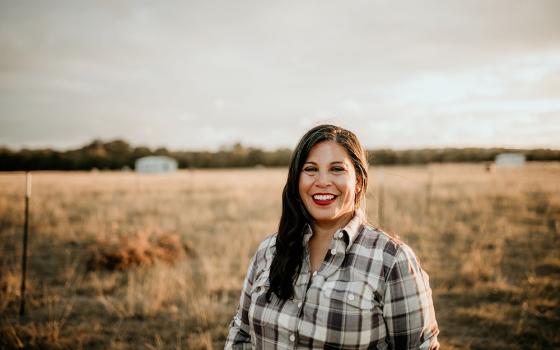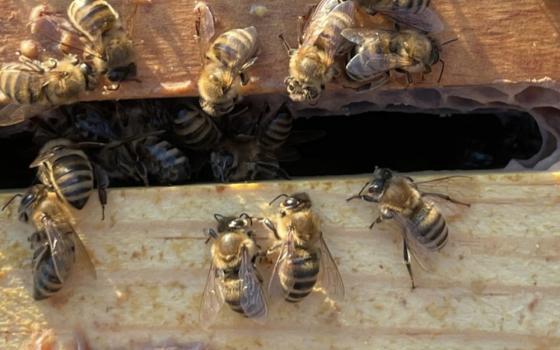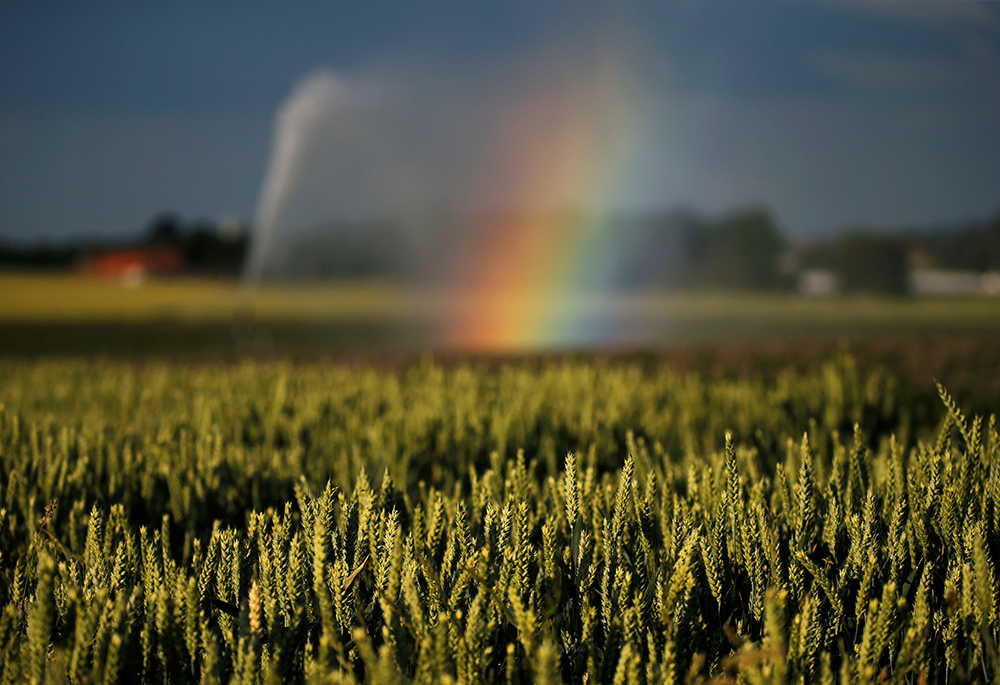
A rainbow is seen in late June 2020 as a wheat field is irrigated after authorities announced a drought risk for the summer in Sailly-lez-Cambrai, France. (CNS/Reuters/Pascal Rossignol)
The third Sunday of Advent is a unique one, often called "Gaudete Sunday" because the waiting is almost over and we will have reason to rejoice soon. In the meantime, in the day's Mass readings, James asks us to "be patient" like the farmer who is waiting on the new life of their crops (James 5:7).
While I am not a farmer, I know what it is like to wait. We all do. We wait for a loved one to come home. We wait for a paycheck to make its way into the bank account. We wait for news about our health, that job we applied for or acceptance into a life-changing program. Waiting is a common experience, so how do we heed James' advice and be patient when God sometimes moves at the pace of a farmer's crop?
I am not a patient person. I spent the past four months job-hunting on a temporary but insufficient income and I hope to never experience something like that again. From August through November, I put in countless hours of work rewriting cover letters, updating my resume, and sweating through numerous interviews. I wondered when it might yield some sort of fruit, and desperately prayed for a rain that would saturate what seemed like impossibly dry ground.
I grappled with patience during those four months as I struggled to pay my bills, and the Lord came to me over and over again through the generosity of family, friends and acquaintances. I planted seeds like the farmer, and even though I could not perceive God's movement in the quiet work of roots forming beneath me, their support showed me that I could trust in "the coming of the Lord," and thus my heart was made firm (James 5:8).
Advertisement
The Gospel of Matthew tells us what it will be like to rejoice when the waiting is over: "the blind regain their sight, the lame walk, lepers are cleansed, the deaf hear, the dead are raised, and the poor have the good news proclaimed to them" (Matthew 11:5). When my time of waiting had finally come to an end, it felt like the dry ground coming to life after drinking in a soft and satisfying rain. It was the freshness of regained sight, new possibilities and life-giving good news. I could breathe again.
I returned to three lines in the third Sunday of Advent's readings from the Book of Isaiah and noticed they spoke to me differently than they had when I first read them: "The desert and the parched land will exult" (Isaiah 35:1); "the tongue of the mute will sing" (Isaiah 35:6); "sorrow and mourning will flee" (Isaiah 35:10).
Initially, the word "will" in each of those phrases seemed to taunt me — like a reminder that the desert, the mute and the sorrowful were still waiting to rejoice, much like I was still waiting for relief.
Reading them again, however, it felt more like a promise. While there will be times we identify with the desert enduring a significant dry spell, God promises that those times will not last forever.
The waiting ends. The rain comes. The parched land exults.





